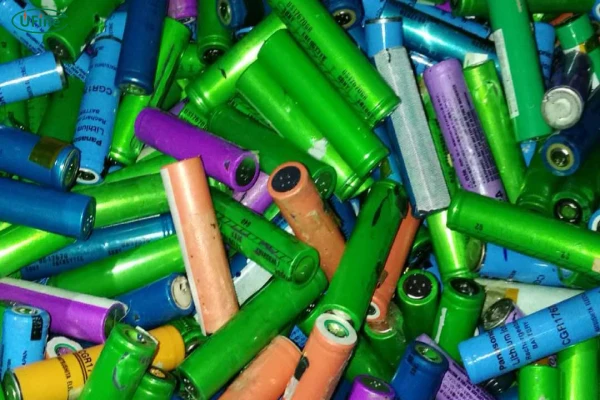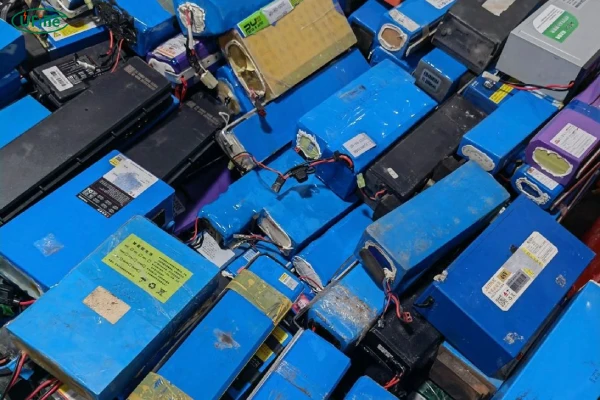Lithium batteries have revolutionized the way we power everything from smartphones and laptops to electric vehicles and renewable energy systems. However, as with all things, they eventually reach the end of their useful life. But what happens to them then? Can they be restored, reused, or repurposed? As a battery manufacturer committed to sustainability and efficiency, at Ufine Battery, we often get questions about the lifespan of used lithium batteries and whether they’re worth buying. In this article, we’ll take a deep dive into used lithium batteries—their advantages, risks, and how to manage them effectively.
Part 1. Can used lithium batteries be restored?

The short answer is yes, but with qualifications. Used lithium batteries can sometimes be restored or reconditioned, but it’s not always possible, and it depends on the battery’s age, condition, and use history.
Over time, lithium-ion batteries degrade, mainly due to the repeated charge and discharge cycles. This is a natural part of their life cycle. When a battery is used, it loses its ability to hold a charge effectively, and its overall capacity decreases. However, some used lithium batteries can still be restored through techniques like cell balancing, battery reconditioning, or replacing damaged cells.
However, it’s important to note that the restoration process is not always successful. If a battery has been heavily discharged, exposed to high temperatures, or is too old, attempting to restore it can be more harmful than helpful. It may also compromise the safety and integrity of the battery.
Part 2. Pros and cons
Advantages of Used Lithium Batteries
-
Cost Savings: The biggest advantage of buying used lithium batteries is the price. Used batteries are typically cheaper than new ones, making them an attractive option for businesses looking to cut costs, especially for applications where high energy demand is not critical.
-
Eco-Friendly: Recycling and reusing used lithium batteries help to reduce waste and minimize environmental impact. Instead of letting these batteries end up in landfills, they can be repurposed, reducing the need for new raw materials and lowering the carbon footprint of your business.
-
Availability: As battery technology improves, older models of lithium batteries are often still in circulation. Businesses that need replacements for older devices or systems can find these used batteries as a viable option.
Disadvantages of Used Lithium Batteries
-
Decreased Performance: Over time, used lithium batteries lose their ability to hold charge, and their capacity diminishes. This means that, even if you buy a used battery that seems to function well initially, its performance may degrade rapidly, especially if it’s already gone through a number of charge cycles.
-
Risk of Failure: While it’s possible to find used batteries in good condition, there’s always a risk that they might fail prematurely. For critical applications—like backup power systems, medical devices, or electric vehicles—using a used lithium battery can be risky if it’s near the end of its lifecycle.
-
Safety Concerns: Lithium-ion batteries, whether used or new, can be dangerous if they are mishandled, overcharged, or exposed to extreme conditions. Used batteries may have suffered from these issues, leading to increased risk of battery leaks, fire, or explosion.
Part 3. What are the uses of used lithium batteries?
Not all used lithium batteries are destined for the trash. In fact, many can be repurposed for secondary uses or recycled to extract valuable materials. Here are some ways that used lithium batteries can still be of value:
-
Energy Storage Systems: Used batteries with diminished capacity can still be used in energy storage applications. For example, if you run a business that uses solar power, a used lithium battery can serve as a cost-effective storage solution. While these batteries may not hold a charge as long as new ones, they can still provide power for less demanding tasks.
-
Electric Vehicles (EVs): Many EV manufacturers use second-life batteries—batteries that were originally used in consumer electronics or other vehicles—for stationary energy storage solutions. These used lithium batteries are repurposed to store energy for the grid or homes.
-
Power Tools and Low-Power Devices: Used lithium batteries that still have some capacity left are also good for powering low-power devices like power tools, toys, and small appliances. In these scenarios, a slight reduction in capacity may not affect the performance of the device.
-
Battery Recycling: Even if a used lithium battery is no longer functional, it can be recycled. Recycling used lithium batteries allows businesses to recover valuable raw materials, such as lithium, cobalt, and nickel, which can be used to make new batteries.
Part 4. How long can used lithium batteries last?
The longevity of a used lithium battery varies based on several factors, such as:
- Age: A battery that is a few years old may still have significant life left if it has been well cared for.
- Cycle Count: The more times a battery has been charged and discharged, the shorter its lifespan will be. Lithium-ion batteries typically last for 300-500 cycles before their capacity starts to degrade significantly.
- Usage Conditions: Exposure to extreme temperatures, overcharging, and deep discharges can accelerate the degradation of a battery.
On average, a used lithium battery that has been through several charge cycles can last anywhere from 1 to 2 years, depending on how much capacity is left. However, this varies depending on the specific type of battery and its previous usage.
Part 5. How to avoid the trap of used lithium batteries?
Buying used lithium batteries can be a good option, but there are many risks involved, including the potential for scams or buying substandard products. Here’s how you can avoid getting trapped:
-
Know the Seller: Always purchase from trusted suppliers or authorized dealers. Look for sellers who offer a warranty and can provide documentation on the battery’s previous use and cycle count.
-
Ask About the Battery’s History: When buying a used battery, ask the seller for details about its age, how many charge cycles it has gone through, and if it’s been refurbished or tested. Transparency is key to ensuring you’re making a safe purchase.
-
Check the Price: Be cautious of prices that seem too low. If the price of the used lithium battery is significantly cheaper than new models, the seller may be trying to offload a faulty product.
-
Test Before Purchase: If possible, test the battery before buying it. Check its charge time, capacity, and overall performance to ensure it’s still functional.
Part 6. How to judge whether my battery is a used lithium battery?
If you suspect that you’ve purchased a used lithium battery without knowing, here are a few signs to look for:
-
Appearance: Examine the battery for any physical damage, such as dents, swelling, or cracks. These could be signs that the battery has been heavily used or improperly stored.
-
Battery Life: If your battery drains unusually fast or takes much longer to charge, this could indicate that the battery is used or nearing the end of its lifespan.
-
Cycle Count: Many modern devices and battery management systems allow you to check the cycle count of a battery, which tells you how many times it’s been fully charged and discharged. A high cycle count generally means the battery has been used for a significant period.
Part 7. How to deal with used lithium batteries
Proper disposal of used lithium batteries is crucial to ensure safety and minimize environmental impact:
-
Recycle: Never dispose of lithium batteries in regular trash. Always take them to certified battery recycling centers where they can be properly processed and the valuable materials recovered.
-
Storage: If you’re not ready to dispose of or repurpose the battery, store it in a cool, dry place with a charge of about 40-60%. This helps maintain its health for future use.
-
Avoid Overcharging: Overcharging can damage the battery and reduce its lifespan. Always ensure the charger is compatible with the battery and that it’s not left plugged in after it’s fully charged.
Part 8. Ufine Battery: quality you can trust
At Ufine Battery, we understand that buying a used lithium battery can raise concerns about safety, reliability, and performance. That’s why, as a leading manufacturer of custom lithium batteries, we never sell used batteries. All our products are brand new, rigorously tested, and manufactured to the highest quality standards.
We are committed to transparency and ensuring our customers make informed decisions. So, feel confident that when you buy from us, you’re getting the best new lithium batteries, not used or refurbished ones.
Part 9. Conclusion
When properly managed, used lithium batteries can still provide value and contribute to sustainability goals. However, it’s important to weigh the advantages and disadvantages, and understand the limitations of these batteries before making a purchase or deciding to use them in your business. Whether you’re looking to repurpose, recycle, or simply dispose of used lithium batteries, always take the necessary steps to ensure safety and maximize their potential.
At Ufine Battery, we provide the safest, most reliable lithium battery solutions available. When you choose us, you’re choosing quality, consistency, and peace of mind. Never worry about the risks of used batteries again—because we’ve got you covered.
Related Tags:
More Articles

How to Choose the Best Floor Scrubber Battery for Commercial Cleaning?
Selecting the ideal floor scrubber battery ensures a long runtime, rapid charging, and minimal maintenance for efficient commercial cleaning operations.
Battery for Blower vs Battery for Leaf Vacuum: Which One Should You Choose?
Battery for blower vs leaf vacuum—learn the key differences in power, fit, and runtime to choose the right battery for your outdoor tool needs.
How to Choose the Right Battery for Blower?
Choosing the right blower battery? Consider voltage, capacity, chemistry & usage. This guide helps match the best battery for peak performance.
How to Choose the Best Insulated Battery Box for Lithium Batteries?
Choosing the Best Insulated Battery Box for Lithium Batteries? Discover key factors such as size, material, and safety for optimal protection and performance.
7 Critical Elements on a Lithium Battery Shipping Label
What must be on a lithium battery shipping label? Learn 7 key elements to ensure safety, legal compliance, and correct handling across all transport modes.




